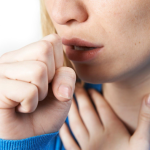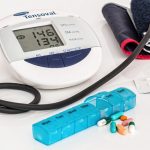Do’s and Don’ts When Taking Sleeping Medications
When you can’t sleep, the entire world is against you. As a result, you become grumpy, irritable, and snappy. Soon, you start to feel like you’re going crazy. If you’ve tried everything else and nothing has worked, it may be time to consider taking sleeping medication.
There are a lot of different sleeping medications on the market, and it can be hard to know which one is right for you. Therefore, you must talk to your doctor about your options and ensure you understand each medication’s possible side effects.
Once you’ve decided to take sleeping medication like zopiclone 10mg, there are a few things you should do (and avoid doing) to ensure that it’s effective and safe.
DO:
- Start with the lowest possible dose: Sleeping medications can be effective at lower doses than you might think. If your doctor prescribes a high dose, ask if you can start with a lower dose and increase it if necessary.
- Take it only when needed: Sleeping medications should be used occasionally, not every night. Talk to your doctor about other options if you need to take them more than a few times a week.
- Follow the instructions: Ensure you understand how to take the medication and follow the instructions carefully. Don’t take more or less than prescribed.
- Set up a sleep schedule: Taking a sleeping medication can help you get into a regular sleep schedule. Go to bed and wake up at the same time every day, even on weekends.
- Create a relaxing bedtime routine: A relaxing bedtime routine can help you fall asleep more quickly and decrease the need for sleeping medication. Try taking a warm bath, reading a book, or listening to calming music before bed.
- Use caution with alcohol: Alcohol can make sleeping medications less effective and increase the risk of side effects. If you drink alcohol, do so in moderation, and don’t drink within a few hours of taking sleeping medication.
- Check for interactions: Some medications can interact with sleeping pills, making them less effective or more dangerous. Make sure your doctor knows about all your medications, including over-the-counter drugs and supplements.
- Be patient: It may take a few nights to find the right dose or medication for you. Don’t get discouraged if it doesn’t work immediately.
- Consider the long-term: Sleeping medications can be habit-forming, so it’s essential to consider the long-term risks and benefits.
- Store them safely: If you have children or pets, ensure your sleeping medication is stored in a safe place where they can’t reach it.
- Dispose of them properly: When you’re finished taking sleeping medication, dispose of it properly. For example, don’t flush the toilet or pour it down the sink.
- Keep track of your symptoms: It can be helpful to keep a sleep diary to track your sleep patterns and medications. This information can be shared with your doctor to help them understand what’s working and isn’t.
- Be prepared to stop taking it: Sleeping medications are meant to be used for a short period. So once your sleep problems have resolved, you should stop taking the medication.
- Consider other options: If you’re having trouble sleeping, many other options are available besides medication. Talk to your doctor about lifestyle changes or therapy that can help you get a good night’s sleep.
DON’T:
- Drive or operate machinery: Sleeping medications can cause drowsiness and impair your ability to drive or operate machinery. Don’t do risky activities until you know how the medication affects you.
- Drink grapefruit juice: Grapefruit juice can increase the level of some sleeping medications in your body, which can lead to dangerous side effects. Avoid drinking grapefruit juice if you’re taking sleeping medication.
- Stop abruptly: If you need to stop taking sleeping medication, do so gradually instead of stopping suddenly. Sudden discontinuation can cause withdrawal symptoms or make it difficult to sleep without the medication.
- Share your medication: Sleeping medications can be addictive, so don’t share them with anyone else. If you think someone has taken your medication, call poison control immediately.
- Take it forever: Sleeping medications are meant to be used short-term, not long-term. Talk to your doctor if you take them more often than intended.
- Ignore the side effects: All medications have potential side effects. Talk to your doctor immediately if you experience any side effects from sleeping medication.
- Take it without talking to your doctor: Sleeping medication can be dangerous, so don’t take it without a prescription and medical supervision.
- Take it if you’re pregnant: Sleeping medication can cross the placenta and affect your developing baby. If you’re pregnant or planning to become pregnant, talk to your doctor before taking any sleeping medication.
- Take it if you’re breastfeeding: Sleeping medication can pass into breastmilk and affect your nursing baby. If breastfeeding, talk to your doctor before taking any sleeping medication.
- Take it if you have a medical condition: Sleeping medication can interact with other medical conditions. Make sure your doctor knows your health conditions before starting any new medication.
- Take it if you’re taking other medications: Some medications can interact with sleeping pills, making them less effective or more dangerous.
- Take it without a plan: Sleeping medication can be habit-forming, so it’s essential to have a plan for how you will take it and when you will stop.
- Take more than directed: Taking more sleeping medication than directed can be dangerous. If you accidentally take too much, call poison control immediately.
- Take it without food: Some sleeping medications can cause nausea and vomiting when taken on an empty stomach. To avoid this, take your medication with food.
- Save it for later: Sleeping medication can lose its potency over time. If you have leftover medication, talk to your doctor about how to dispose of it safely.
Sleeping medications can be effective at helping you get the rest you need. But it’s essential to use them carefully and only as prescribed by your doctor. By following these do’s and don’ts, you can help ensure that your experience is safe and positive.







